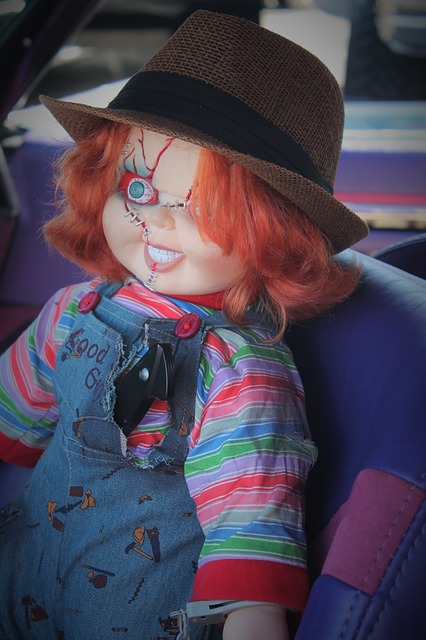
This is a guest contribution from Cathy Baylis.
Every time we watch a horror movie, we experience suspense even though we’re actually aware that what’s happening in front of our eyes is not real. And yet, some movie scenes and plots are so realistic that we simply cannot “go with the flow”.
Horror movies usually make us feel like we are the protagonists, and that we are under great danger. Even though the movie is fictional, the power of the scenes manages to trigger intense emotional responses.
The explanation is simple: our subconscious mind does not differentiate real from the unreal. That is why dreams feel so real when you’re having them, and that is why horror movies can often provoke the same unconscious reactions as dangerous real-life events.
Neurocinematics is a fairly new science that studies the effects and the influence of movies on people’s minds. Studies from Research Paper Help suggest that 3 out of 10 teenagers report negative psychological effects after watching a “marking” horror movie. Out of that, one is probably going to suffer long-term consequences.
How do horror movies actually affect your brain, and why do they do so? Let us find out.
1. They Trigger our Animal Brain
When you watch a movie and you allow yourself to be fully immersed, you’re basically eliminating the barriers that are differentiating the real from the unreal. Simpler put, you’re no longer trying to control your awareness and you allow the images that appear in your face to reach directly the subconscious. You are cutting the filter.
When that happens, you become fully immersed. During horror movies, your primitive brain will often activate because it actually believes that you are in danger. That is why most horror movies provoke uncontrollable reactions (screaming, eye closing, etc.), and that is why people consider them often relaxing.
It is a paradox indeed, but a good horror movie disconnects you from reality and allows you to simply live the present moment which is truly beneficial.
2. They Create Neuro Associations
A neuro-association is the association of emotions to objects, events, or past experiences. For example, if a child watches a horror movie with clowns and his fragile mind reacts negatively throughout the movie, he can often suffer post-traumatic stress.
“What happens is that children (and some adults) can be surprised by the intensity of the movie and can actually lose the sense of reality throughout scary scenes. At that moment, their brain is totally immersed and they are extremely scared. Those strong emotions can leave marks, and the neuro-associations will often influence the future of the child/adult.” – Essayhave Review.
To continue the clown example, a person who got scared because of clowns will always have instant negative reactions when seeing clowns on the street.
3. They Make the Brain Trigger Physical Responses
When we watch a horror movie and we’re immersed in it, our mind is really working hard. It is hustling to coordinate our body’s reactions and chemistry, it works hard to protect our psyche, and it works hard to “stay in control”.
Here are some of the main body reactions that horror movies provoke:
- Heart rate increase
Studies performed by an assignment writing service suggests that the heartbeats of students who watch horror movies significantly increase by up to additional 14 beats per minute. That is also triggering changes in the blood flow and blood pressure of the person.
Additionally, it was found that watching horror movies can increase the production of white blood cells and an increased concentration of hematocrit. These are reactions of the brain that protect the body from intruders.
- Muscle contraction
Whenever the “animal brain” is in “danger”, it’ll start ringing the alarm and so the body reacts. Whenever you feel scared, your arms and legs contract, as well as other parts of your body.
- Sweating
Palms sweating is a very common effect provoked by horror movies. In fact, anything that keeps us immersed in an intense experience is going to affect the way we sweat because that is the first sign of emotional arousal. Of course, this depends from person to person, and from reaction to reaction. The stronger the effect, the more sweating the viewer will experience.
Takeaways
Why do we keep watching them?
Even though it’s pretty clear that horror movies bring slightly more negative effects than positive ones, some of us are looking after the next big emotional rollercoaster.
There is a technique that movie directors use, called the “arousal transfer theory”, which basically suggests that the negative feelings we experience will help to intensify the positive feelings that we are supposed to get when the protagonist is finally safe.
And lastly, the fact that horror movies often takes us out of our comfort zones and gives us the thrills we don’t usually get in our day-by-day life.
About the Contributor
Cathy Baylis is a freelance content writer specializing in personal growth, career development, and education. She loves sharing her interests with readers, and she has something to say, for sure. Writing is not only her hobby but profession at the same time.
Got an idea you’d like to submit? We’re always looking for quality infotaining posts about true crime, horror, and the paranormal –or some blend thereof. Visit our Writers Wanted page for submission details. We’d love to have you join our Skeleton Crew!
P.S.
Yes.
That’s the answer to that question we know you’re wondering about. We do pay. Not a lot. Don’t get excited. But we believe in paying writers for their time and energy. You’ll find complete details on the Writers Wanted page.
